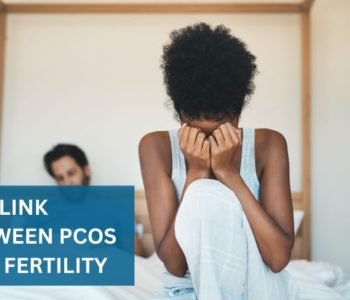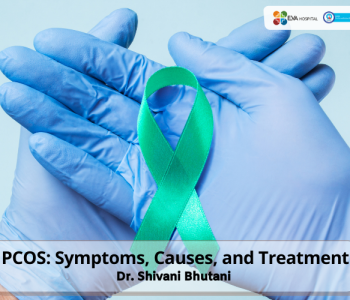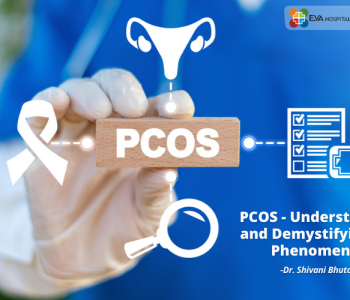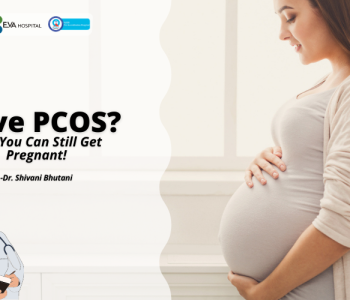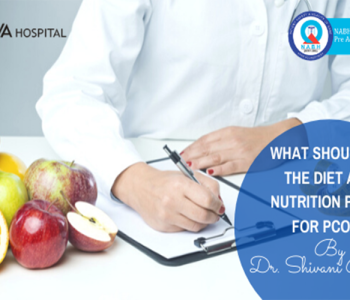Women Can Lessen Their Suffering with Early Detection of PCOS
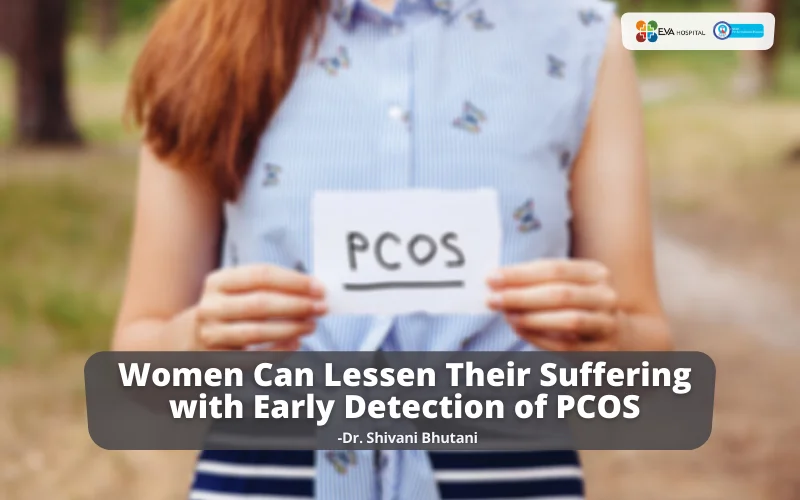 PCOS
PCOS
Women Can Lessen Their Suffering with Early Detection of…
PCOS or polycystic ovarian syndrome is a common hormonal disorder in females that occurs in reproductive age.
(The entire time between the first period and menopause counts as the reproductive age.) However, it is much more than that.
Apart from other effects, PCOS is a common cause of infertility that affects 8-13% of women! Furthermore, this health condition can continue much beyond the fertile years.
That is why its detection and treatment in the early stages become important. It can save the patient from a host of complications.
If one has oily skin, missed periods, skin darkening, or trouble managing weight, one might think these issues are just a normal part of life.
However, such minor problems could actually be early signs of polycystic ovary syndrome. So, do not take any symptoms lightly and seek the care of your gynecologist.
What causes PCOS?
The exact reason for PCOS cannot be pinpointed, although it does connect with genetics and family history. The hormonal level can become high during the growth of the fetus in the uterus even before you are born, or lifestyle or environment.
The condition is due to the increased levels of two hormones in the blood—androgen and insulin. Both these hormones are
Hormones are chemicals made in your body and secreted into the bloodstream to carry messages to different organs that regulate their functioning.
Their exact levels in the blood are vital for overall health. The excess or deficiency causes abnormalities. The imbalance of androgen and insulin in females affects the hair growth in the pubic and underarm area and sexual functions such as ovulation among many others.
Most importantly, it causes the ovaries to act abnormally. However, it is not a condition that affects just the ovaries, as the name suggests.
If we can medically control the hormone levels, the ovaries function normally, and the symptoms improve.
Symptoms- Don’t Take Them Lightly
As we said, the most alarming symptom or side effect is infertility caused by menstrual problems or inability to conceive, or both. Let us then look at the common conditions that can help you spot PCOS in its early stage.
Common symptoms easily perceptible to the patient are:
- Irregular periods or none at all
- Abnormal hair development (on the face, chest, back, or buttocks)
- Weight gain or difficulty in losing weight
- Hair fall, weakening & thinning hair on the head
- Oily skin or acne
- Trouble getting pregnant (due to irregular or no ovulation)
If you have two or more of the above conditions, consult an experienced Obstrecian-Gynaecologist like Dr.Shivani Bhutani at Eva Hospital. She has good experience in gynae abnormalities.
She is also infertility and IVF expert who gives people the gift of parenthood. She would make some investigations, ask about your genetic history. A diagnosis of PCOS is mostly made on the following three investigations:
- Abnormal periods.Infrequent, unbalanced, or prolonged menstrual cycles. fewer than nine periods a year, more than 35 days apart, and uncharacteristically heavy ones are sure signs that one might have a hormonal imbalance.
- High androgen level. Excessive levels of this male hormone may cause hirsutism (excess facial and body hair), severe acne, and male-pattern baldness.
- Polycystic ovaries. The ovaries become enlarged and contain follicles that surround the eggs. Consequentially, the ovaries stop functioning regularly.
Why is Early Detection Important?
Early detection and treatment are imperative because, firstly, PCOS can disturb a female’s menstrual cycles and affect her fertility or childbearing capacity. Apart from that, it can increase her chances of developing other health problems in later life.
Women with PCOS are at increased risk of acquiring the following:
- Difficulty in conceiving – hard to get pregnant and risk of miscarriage or premature birth.
- Non-alcoholic steatohepatitis — stark liver inflammation caused due to fat build-up in the liver.
- Type 2 diabetes – or prediabetes is a lifetime condition that makes a person’s blood sugar level too high
- Depression and anxiety – because the symptoms of PCOS ruin your confidence and self-respect
- Disturbing menstrual cycle – either heavy blood loss in periods occurring too frequently or irregularly. Alternatively, you may miss them or even skip them for a few months.
- Sleep apnoea – a condition of interrupted breathing while sleeping, which is due to obesity.
- Metabolic syndrome — a group of conditions including high blood pressure, triglycerides levels, and abnormal cholesterol that may lead to heart disease or stroke.
- Endometrial cancer – women who continue with very scant & irregular periods (3-4 times yearly) are at a high risk of developing cancer of the uterine wall.
Treatment
Having PCOS, however, the chance of getting any of the above abnormalities can be minimized by using treatments to regulate hormonal levels and menstrual cycles such as contraceptive pills or a special type of IUD- intrauterine devices.
Lifestyle changes are also, one of the first treatments doctors recommend for PCOS and they work well. Weight loss is one of the lifestyle changes that can cure most symptoms and improve the odds of getting pregnant.
Final words
No matter what the age, women must watch out for any little abnormal functioning of the sexual organs and look out for their reproductive and overall health.
Remember, the hormone levels in a female play a vital role in her overall health and fertility. The moment you notice any of the above indicators, it is time to visit your Ob-Gynae!
